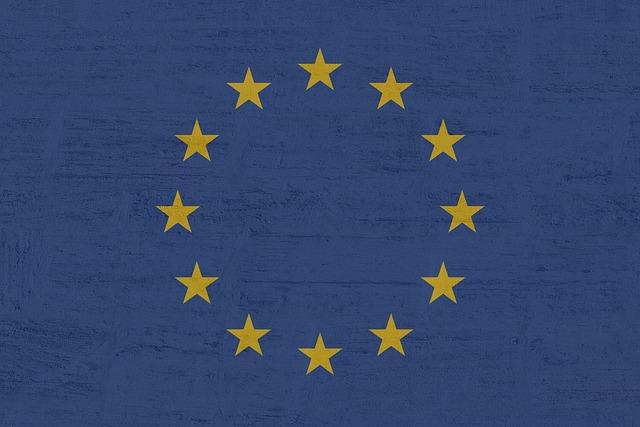In a surprising turn of events, the European Union’s recent decision to impose restrictions on the sale of a significant study conducted in Guinea-Bissau has sparked widespread inquiry and debate within international development circles. The report, which addresses critical socio-economic issues facing the West African nation, has now become the centre of controversy, raising questions about academic freedom, the principles of open access to facts, and the EU’s role in global research dissemination. As stakeholders from various sectors seek clarification on the implications of this ban, experts are calling for an urgent examination of the motivations behind such restrictions and their potential impact on future research collaborations in the region. This article delves into the unfolding situation, the voices of those affected, and the broader consequences for academic integrity and international cooperation in developmental studies.
Inquiry Launches Following Alleged EU Ban on Guinea-Bissau Study Sales
In a significant development, an inquiry has been initiated in response to allegations that the European Union has imposed a ban on the sales of a comprehensive study focusing on Guinea-Bissau. Sources indicate that this sweeping decision may have ramifications not only for the distribution of the study but also for ongoing and future research collaborations within the region. The controversy has raised numerous concerns among stakeholders,from academic researchers to international development organizations,regarding the implications of such a ban on understanding and analyzing socioeconomic conditions in Guinea-Bissau.
As details of the inquiry unravel, key questions are being posed regarding the motivations behind the alleged ban. Critics argue that restricting sales may hinder valuable insights into pressing issues, including governance challenges and the country’s extensive natural resources. Additionally,the situation highlights broader themes of access to information and the balance between regulatory oversight and academic freedom. Stakeholders are calling for transparency in the inquiry process,emphasizing the need for dialog among EU representatives,local researchers,and international partners to ensure that vital research can continue without unnecessary hurdles.

Impact of the EU Decision on Guinea-bissau’s Research Community and Economy
The recent decision by the European Union to impose restrictions on the sale of research outputs from Guinea-Bissau has sent shockwaves through the nation’s academic landscape.This move is expected to hinder both the academic freedom and the financial viability of local researchers. The implications include:
- Stifled Innovation: Researchers may find it increasingly difficult to publish and monetize their findings,which can dampen the drive for innovation.
- Reduced Collaboration: International partnerships may dwindle as foreign institutions could be wary of engaging with a restricted market.
- Brain Drain: Talented individuals may seek opportunities in countries with more favorable research environments, further hindering local expertise.
The economic ramifications are equally concerning, notably for a nation already grappling with challenges related to development.The ban is likely to limit funding opportunities,causing research institutions to rely heavily on dwindling domestic resources. The following aspects illustrate the potential economic impact:
| Impact Area | Potential Result |
|---|---|
| Job Loss | research positions may be cut as institutions struggle to secure funding and maintain operations. |
| Investor Hesitance | Potential investors might view the ban as a sign of instability, thereby reducing investment flows. |

Analysis of the Legal Framework Surrounding Research Publication in the EU
The legal framework governing research publication within the European Union is intricate and fundamentally influenced by a mix of regional regulations and national laws. at its core, EU Regulation 1049/2001 emphasizes public access to documents held by EU institutions, promoting transparency in research initiatives. However, this openness is often counterbalanced by the necessity to protect sensitive data and intellectual property, creating a complex landscape for researchers and publishers. The interplay between the General Data Protection Regulation (GDPR) and publication practices poses significant challenges, especially when personal data is involved in scientific studies. researchers must navigate these regulations carefully to ensure compliance while seeking to disseminate their findings broadly.
Additionally, the Horizon Europe program aims to foster collaborative research across member states, yet it also imposes stringent guidelines on the publication of results. This includes the obligation to make research outputs accessible through open access, pushing for the public availability of findings while respecting copyright laws. The balance of these competing interests can create tension between funding bodies, researchers, and publishers. A review of recent incidents, such as the controversy surrounding the Guinea-Bissau study, highlights the potential repercussions when the legal framework is not adequately adhered to. The case serves as a reminder of the ongoing debate over the ethics and legality of research publication within the EU’s dynamic regulatory habitat.

Recommendations for policy Revisions to Support Research collaboration
To enhance research collaboration,it is crucial to implement policy revisions that foster transparency and accessibility in the sharing of data and findings. key recommendations include the following:
- Streamline approval processes for research sharing agreements to enable faster collaboration between institutions, especially those across borders.
- Establish a centralized database where researchers can easily access and contribute data sets, thereby reducing redundancy and enhancing cooperative efforts.
- Incentivize partnerships between academic institutions and local governments to ensure that research findings translate into actionable policies, particularly in regions like Guinea-Bissau.
Moreover, it is essential to address potential barriers that hinder collaborative research initiatives by revising funding guidelines to prioritize multi-disciplinary projects. Including provisions such as:
| Barrier | Suggested Revision |
|---|---|
| Inconsistent funding | Introduce flexible grant options for collaborative projects. |
| Lack of recognition | Adjust academic evaluation criteria to value collaborative work equally. |
| Intellectual property concerns | Create clearer guidelines on data ownership and utilization. |

Calls for Transparency and Accountability in EU Regulatory Practices
The recent revelation regarding the EU’s actions to supposedly ban the publication and sale of a critical study on Guinea-Bissau has ignited a heated debate over the necessity of regulatory transparency and accountability within the European Union. Stakeholders representing various sectors, including researchers, non-governmental organizations, and the public, are increasingly demanding clearer insights into the decision-making processes that guide EU regulations.Calls for transparency highlight several key concerns:
- Consistency in Policy Implementation: Stakeholders want assurances that regulations are applied uniformly across all member states.
- Clarity in Decision-Making: There is a pressing need for comprehensive documentation and justifications for regulatory measures.
- Engagement with Affected Communities: The necessity of consulting with local populations and experts prior to imposing regulations cannot be overstated.
Furthermore,advocates for reform emphasize the importance of establishing robust mechanisms that can hold regulatory bodies accountable for their actions and decisions. The perception of opacity in the EU’s regulatory framework not only undermines trust but also stifles innovation and research,as individuals and organizations may hesitate to engage in projects perceived to be at risk of abrupt regulatory changes. Creating a transparent environment is essential for fostering collaboration and ensuring that scientific research benefits not just policymakers but also the societies directly impacted by those policies. To illustrate, the following table summarizes the potential impacts of increased transparency in EU regulatory practices:
| Impact Area | Potential Benefits |
|---|---|
| Research Funding | Increased investor confidence and support for local studies. |
| public Trust | Strengthened community engagement and acceptance of regulations. |
| Quality of Research | Improved results from collaborative efforts that inform policy. |

Exploring Alternative Avenues for guinea-Bissau Researchers to Access Funding
The recent inquiry surrounding the purported ban by the EU on the sale of Guinea-Bissau studies highlights a pressing need for local researchers to diversify their funding sources.With traditional avenues proving increasingly inaccessible,tapping into alternative funding opportunities has become imperative. Researchers in Guinea-Bissau should consider options such as:
- Non-Governmental Organizations (NGOs): Collaborating with international NGOs can open doors to grants specifically targeting research in areas such as health, agriculture, and education.
- Crowdfunding Platforms: Utilizing online crowdfunding can provide financial support for specific projects, especially those that resonate with a global audience.
- Corporate Sponsorships: Developing partnerships with businesses interested in social responsibility can yield funding while benefiting both parties.
Additionally, enhancing the visibility of research outputs can attract funding from alternative sources. Building a comprehensive online presence with a focus on shared findings can attract interest from various stakeholders. Researchers might also explore opportunities within:
| Alternative Funding source | Potential Benefits |
|---|---|
| International Research Networks | Access to a wider pool of resources and collaboration opportunities. |
| Government Grants from Other Countries | Possibility of funding for region-specific studies ignored by local bodies. |
| Academic Institutions abroad | Research collaborations can yield joint funding applications and shared resources. |
Final Thoughts
the decision to restrict the sales of the Guinea-Bissau study has sparked significant controversy within the international development community. As the inquiry unfolds, stakeholders are calling for clarity on the implications of such actions and their potential effects on research dissemination and collaboration. The case raises critical questions about transparency, access to information, and the role of regulatory bodies in fostering or hindering scientific inquiry. As developments continue, Devex will keep a close watch on the situation, providing insights and updates on the outcomes of this inquiry and its broader impact on the research landscape in the European Union and beyond.







